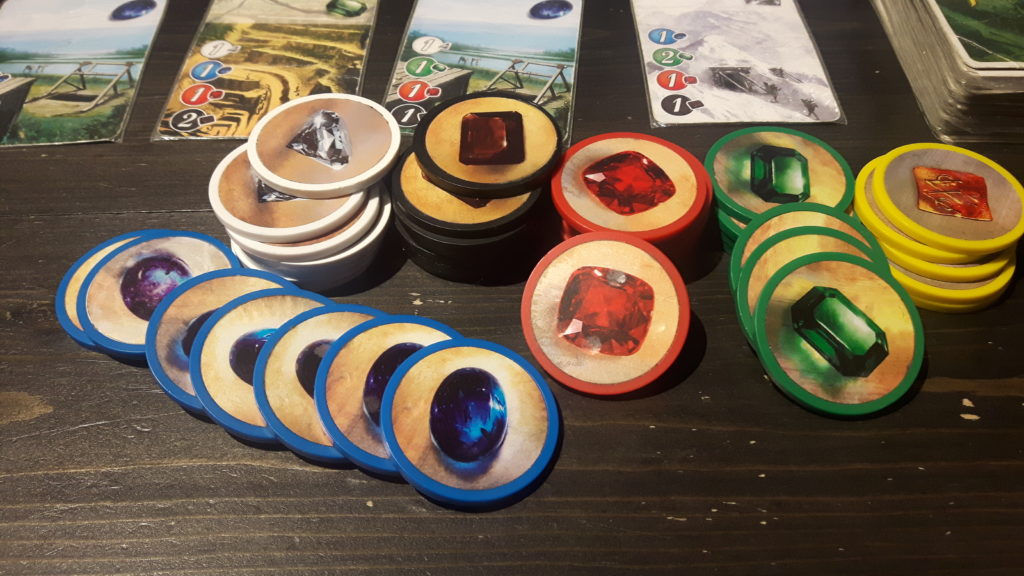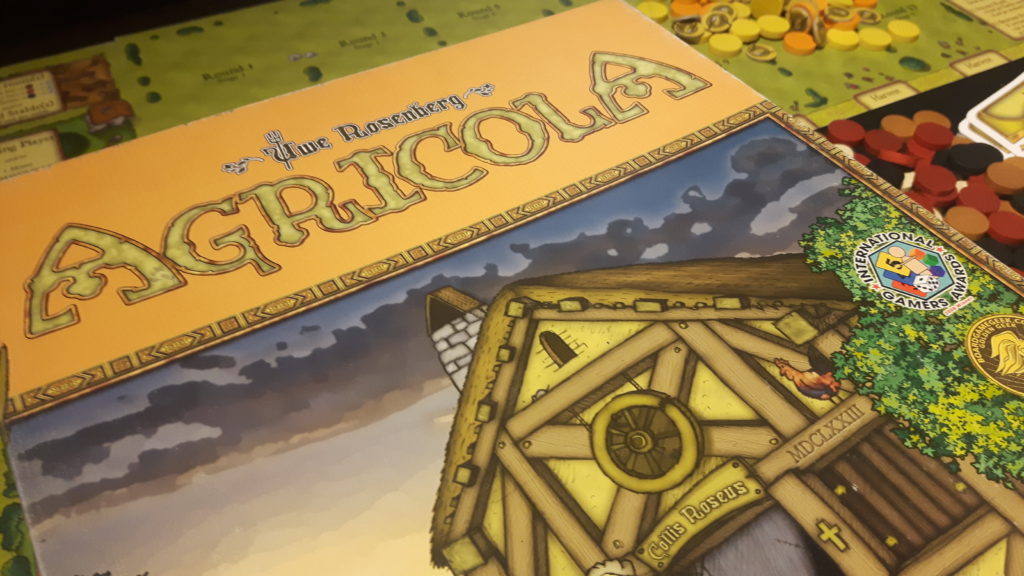Game Mechanics Part 3: Resource Management & Worker Placement
Welcome to part 3 out of 4 of a blog post series all about analyzing and discussing game mechanics that both excite and delight us. So far we have covered tile placement and cooperation; card drafting and deck building. If you’ve been keeping along with all of this, give yourself a pat on the back. You’re halfway to becoming a board game master.
Resource Management
Resource management is the butter to the bread that is most strategy games — the tokens to the board if you will. Any game in which you spend your limited or finite amount of resources to completing a task or earning points is considered to have the resource management mechanic. Many games typically focus on the accumulation of wealth or resources, however, this is often a mechanic that is used in conjunction with another (like worker placement). Alternatively some resource management games include betting/wagering, commodity speculation, stockholding, etc., where the resources available to you aren’t spent completing tasks or gaining points, but rather trading in and out to maximize profit as much as possible.

On your first turn it is not uncommon to feel like every action available is incredibly expensive, and it’s easy to become frustrated by your lack of purchasing power. By the fifth round, you have to move your coffee cup to a different table, and perhaps pull a whole other table over, to make room for the sheer amount of goods you’ve hauled in. Your opponents can only watch with jealousy as you build a tower of excess goods with one hand and twirl your machiavellian moustache with the other. This glorious sense of booming comes from the fruition of an economic engine you have created, overcoming the initial scarcity of resources. It feels refreshing to drink the lemonade after spending the last several rounds squeezing the lemon.
Worker placement
Worker placement is a mechanic in which players allocate tokens, representing workers, towards providing specific rewards. It’s a simple concept that is usually as easy as placing a worker on the space marked with stone to receive stone. The catch is that normally only one worker may be placed on each spot, so if it is important to you, get there first! Worker placement goes hand in hand with resource management, not only because the rewards reaped are typically resources, but the workers themselves are resources as well.

With worker placement games, the amount of choices becomes increasingly limited as other players take actions and steal spots you had your eyes on. Therefore, it is important to gauge what you need and also what your opponents need, so that you get what you want before they do. Because of this, the value of locations is constantly shifting according to the player’s needs.
Games That Use These Mechanics
An example of a resource management game is Splendor: the gem trading, mine purchasing game of greed that has been a Hex favourite since we opened. In Splendor, you buy properties with gems, and those properties count as gems themselves, allowing you to buy bigger and better properties like some sort of gleaming gem tycoon.
A game which features worker placement as its main mechanic is Orléans, a game of allocating workers in order to gain even more workers. Orléans diverges from the traditional worker placement formula by introducing separate player boards for people to place their workers on with no competition from other players. The competitive side of Orléans comes from the mad rush to collect resources on the main board, which, of course, requires workers.

Normally, this part of the post is dedicated to naming a game that combines both mechanics, however, while researching this topic, I was hard-pressed to find a worker placement game that was not also a resource management game. Next time you’re looking for a worker placement game that involves carefully managing resources though, why not pick up an old classic: Agricola. This is probably Uwe Rosenberg’s most famous game, however, many newcomers to board games will likely pass over it, in favour of newer, flashier titles. A shame, because Agricola is truly a piece of board game history.

